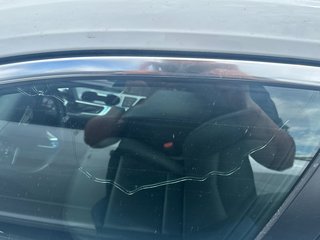Clear Vision: Navigating Windshield Repair Regulations Across the Globe
In today's global automotive industry, ensuring clear and safe visibility through windshields is of utmost importance. Navigating the myriad of regulations and standards surrounding windshield repair can be a complex endeavor for manufacturers, technicians, and consumers alike. From safety requirements to quality control measures, understanding the diverse landscape of windshield standards across different countries is crucial in maintaining high levels of safety and performance in vehicles worldwide. Let' West Jefferson Auto Glass Shop into the intricate world of windshield repair regulations and explore the key factors that shape these standards on a global scale.
Regulatory Landscape Overview
In the realm of windshield standards, navigating the global regulatory landscape can be a complex endeavor. Different countries have varying regulations governing the specifications for windshield repair, aiming to ensure the safety and quality of auto glass used worldwide. Adhering to these standards is crucial for manufacturers, service providers, and consumers alike.
When it comes to windshield repair regulations, some regions focus on the physical characteristics of the glass itself, such as thickness, durability, and optical clarity. These specifications often dictate the type of materials that can be used in windshield repair and replacement, aiming to uphold safety standards on the road.
Furthermore, the regulatory landscape also encompasses guidelines related to installation practices, including the use of proper adhesives, techniques, and equipment. Compliance with these standards not only ensures the integrity of the repair but also contributes to the overall safety of the vehicle occupants.
Key Differences in Global Standards
When it comes to windshield standards worldwide, one key difference lies in the specifications for impact resistance. Various countries have their own criteria for how well a windshield should withstand impacts, which can affect the safety of the vehicle occupants in the event of a collision.
Another important variation is in the guidelines for windshield visibility. Different regions may have specific requirements regarding the tint of the windshield, the use of any coatings or films, and the overall transparency needed for optimal visibility while driving.
Additionally, the regulations surrounding windshield repair techniques and products can differ significantly from one country to another. West Jefferson Auto Glass Shop may have strict guidelines on the types of repairs that are allowed, the materials that can be used, and the qualifications required for technicians performing the repairs.

Implications for Windshield Manufacturers
Windshield manufacturers play a crucial role in ensuring compliance with global standards for windshield materials and construction. Adhering to these regulations is essential to maintaining product quality, safety, and consumer trust in the brand.
By closely monitoring and adapting to evolving windshield repair regulations worldwide, manufacturers can stay ahead of potential compliance issues and streamline their production processes. Auto Glass Replacement West Jefferson minimizes risks of non-compliance but also demonstrates a commitment to producing high-quality, reliable windshields that meet the stringent standards set by regulatory bodies.
Collaboration with industry partners and regulatory authorities is key for manufacturers to navigate the complex landscape of windshield repair regulations across different regions. By fostering strong relationships and open communication channels, manufacturers can gain valuable insights, exchange best practices, and ensure their products meet the diverse requirements of global markets.